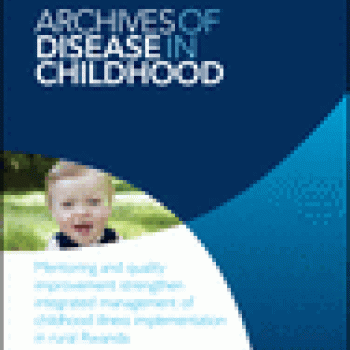
Objective: The mental health of children living in low-income countries remains a neglected research area despite the high burden of disease. This study is one of the first that examines the effects of long-term physical health problems on child mental health disorders in a low-income country and investigates whether this association is modified by the socio-economic status of the child's family.
Methods: Community-based cross-sectional survey of 975 eight-year-old children from 20 sites in Vietnam. Long-term physical health problems were measured by a caregiver report and included conditions such as anaemia, congenital malformation, physical disability and skin problems. Child mental disorders were assessed using the strengths and difficulties questionnaire (SDQ). Generalised estimating equations models were fitted to explore the association between long-term physical health problems and child mental disorders.
Results: Vietnamese children who suffer from long-term physical health problems have odds 2:1 times greater than children without long-term physical health problems of having a mental disorder (95% CI 1.2 to 3.6, p?=?0.006). No significant interaction with socio-economic status was found.
Conclusions: This study showed a high burden of mental disorders among physically ill children, re-enforcing the idea that there is "no health without mental health". While this association needs to be explored longitudinally, children with long-term health problems may be a visible group for targeted mental-health interventions.
The final published version of the article is available on the journal website.

Objective: The mental health of children living in low-income countries remains a neglected research area despite the high burden of disease. This study is one of the first that examines the effects of long-term physical health problems on child mental health disorders in a low-income country and investigates whether this association is modified by the socio-economic status of the child's family.
Methods: Community-based cross-sectional survey of 975 eight-year-old children from 20 sites in Vietnam. Long-term physical health problems were measured by a caregiver report and included conditions such as anaemia, congenital malformation, physical disability and skin problems. Child mental disorders were assessed using the strengths and difficulties questionnaire (SDQ). Generalised estimating equations models were fitted to explore the association between long-term physical health problems and child mental disorders.
Results: Vietnamese children who suffer from long-term physical health problems have odds 2:1 times greater than children without long-term physical health problems of having a mental disorder (95% CI 1.2 to 3.6, p?=?0.006). No significant interaction with socio-economic status was found.
Conclusions: This study showed a high burden of mental disorders among physically ill children, re-enforcing the idea that there is "no health without mental health". While this association needs to be explored longitudinally, children with long-term health problems may be a visible group for targeted mental-health interventions.
The final published version of the article is available on the journal website.

